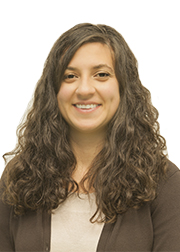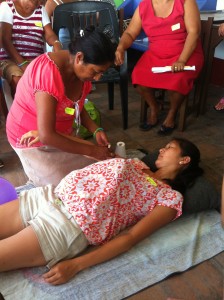 By Mania Kupershtok, CFHI Alumni Advisory Board (AAB) Chair
By Mania Kupershtok, CFHI Alumni Advisory Board (AAB) Chair
Each year, thousands of pre-med students around the country will begin to stress and pore over their medical school applications, writing and re-writing personal statements, reaching out to mentors for letters of recommendation, logging endless hour of community service and shadowing experience, and burying their noses in textbook after textbook studying for the dreaded Medical College Admission Test (MCAT). If you haven’t heard already, things have changed for the MCAT, which now is 3 hours longer and includes sections on sociology and psychology. “Being a good doctor is about more than scientific knowledge. It also requires an understanding of people,” observes Darrel G. Kirch, M.D., President and CEO of the Association of American Medical Colleges (AAMC). “By balancing the MCAT exam’s focus on the natural sciences with a new section on the psychological, social, and biological foundations of behavior, the new exam will better prepare students to build strong knowledge of the socio-cultural and behavioral determinants of health.” It’s about time that the MCAT caught up with what is truly vital in medicine today. Our doctors today need to understand these aspects just as much as they need the basic sciences, and finally, it’s beginning to hit them at the pre-med level.
As a pre-med student, I remember loving the sciences, but that’s not why I became a doctor. I wanted to understand suffering, to really get to the bottom of why patients of different backgrounds and social status were having such drastic difference in health outcomes. Not only that, I wanted to know why this was happening all around the world. When I got the opportunity to work with Child Family Health International, a non-profit organization that partners with international healthcare providers, it changed the direction my future took. I participated in CFHI’s program, Tropical Medicine and Community-Based Care on the Coast of Mexico, based in the southern state of Oaxaca. Oaxaca is one of the poorest states in Mexico with the largest concentration of indigenous populations. Working with 10 other medical students, we worked  closely with the local midwives, physicians, and women in the community to understand their experiences and needs with regard to family planning, sexual health, and maternal health. Using this information, we assisted the local health team in developing and delivering a four-day training for roughly forty traditional midwives from across the state of Oaxaca. I will never forget what it was like to sit down and listen to the midwives’ experiences of providing maternal and child health care in this setting, and the opportunity we had to work with them in their efforts to improve the health of their community. What struck me most about CFHI’s approach was that they work to empower local communities and really take “service-learning” and “partnership” to heart. The focus was not providing a service, but partnering with local organizations and offering the skills and training in an ethical way. After this experience, I continued to have multiple global experiences throughout Central America. By the time I finished medical school, I would not have taken back any of these experiences for anything. I had a better knowledge about communication barriers between physicians and patients, cost burden of disease, importance of relying on physical exam over technological tests, and treating patients as a whole, not just their illness.
closely with the local midwives, physicians, and women in the community to understand their experiences and needs with regard to family planning, sexual health, and maternal health. Using this information, we assisted the local health team in developing and delivering a four-day training for roughly forty traditional midwives from across the state of Oaxaca. I will never forget what it was like to sit down and listen to the midwives’ experiences of providing maternal and child health care in this setting, and the opportunity we had to work with them in their efforts to improve the health of their community. What struck me most about CFHI’s approach was that they work to empower local communities and really take “service-learning” and “partnership” to heart. The focus was not providing a service, but partnering with local organizations and offering the skills and training in an ethical way. After this experience, I continued to have multiple global experiences throughout Central America. By the time I finished medical school, I would not have taken back any of these experiences for anything. I had a better knowledge about communication barriers between physicians and patients, cost burden of disease, importance of relying on physical exam over technological tests, and treating patients as a whole, not just their illness.
Now, as a shiny new family medicine intern, currently working at a hospital where nearly 100% of the population is underserved, I’ve made a pledge to myself to never lose that empathetic side of medicine. I challenge the pre-meds and medical students of today to do the same: Get out there! Yes, learn the basics, but don’t overdo it. Be a real person, spend time outside medicine, get out into the community and the rest of the world and really, truly try to understand where disease comes from and how your patients live their everyday lives outside your clinic. Even the new MCAT wants you to.
Learn more about the recent changes to the MCAT here: https://www.aamc.org/newsroom/newsreleases/273712/120216.html
